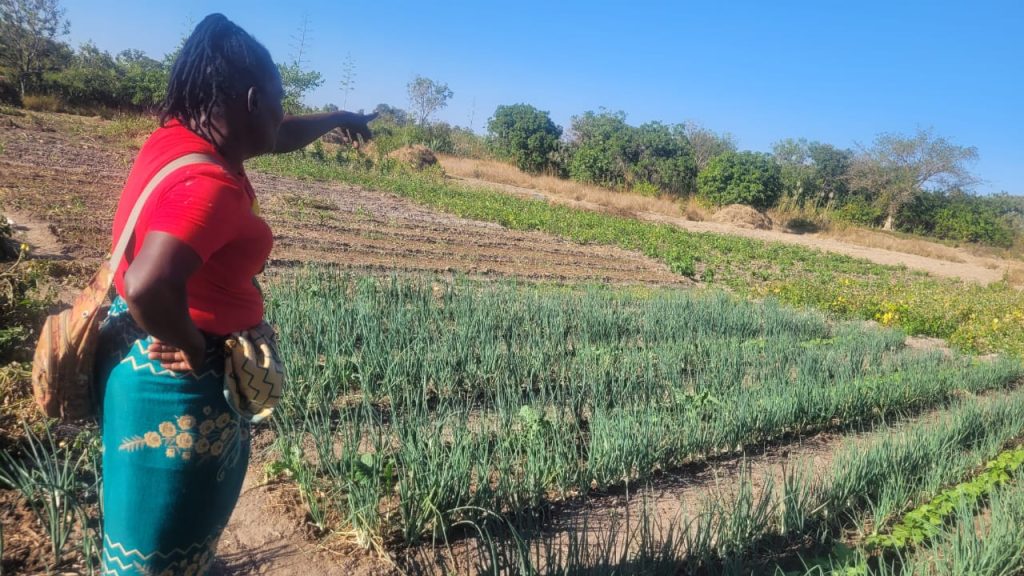By Lloyd Rabaya
Since time immemorial, Zimbabwean women have primarily carried the caregiver role in families. In agriculture, they have been intrinsically involved in crop and livestock production and sustainable farming. They are, however, unsung heroines for their essential role as traditional seed custodians.
In contemporary times, as climate change significantly impacts livelihoods, agroecology farmers have demonstrated remarkable means of survival.
Understanding Agroecology
Agroecology is a holistic approach to agriculture that prioritizes sustainability, social equity, and ecological principles. It seeks to create resilient farming systems that promote biodiversity and support local food systems.
Bertha Dekete, a 58-year-old farmer affiliated with the Zimbabwe Smallholder Organic Farmers Forum (ZIMSOFF) from Topora, has been practicing agroecology for as long as she can remember, having learned from her parents. Traditional seed, she emphasizes, is a very essential element in agroecology.
“I value these traditional seeds because they belong to us. We must protect and proudly preserve them because they offer many benefits and uses,” she highlighted, her voice mellow.
Dekete now grows varieties of millet, traditional maize, and other small grains while also practicing poultry, which plays an integral role in her agricultural methods. With help from her mother, now in her golden years, Dekete uses organic waste from livestock as manure.
“We have been preserving these grains ourselves for a long time, and they have been passed down from one generation to another. They have never changed because of the ways we preserve them,” she shared.
Preservation Techniques
Another farmer, 55-year-old Ndakaitei Ndoorwi from Ndoorwi village in Gutu, reiterated that they use various preservation skills to ensure seed variety does not become extinct. These include safe storage methods, sharing or selling, and specific growing mechanisms, among other key aspects.
“We are the custodians of this seed. For a seed variety to remain alive, we practice seed multiplication by sharing among ourselves, selling, or giving. Also, when planting, I make sure not to plant all the seed in my seed bank because if I have a poor harvest, that seed might become extinct,” Ndoorwi explained.
Ndoorwi highlighted that as soon as the first drop of rain hits the ground, she plants her traditional seeds as they are drought-resilient and can grow quickly. The seed is readily available at no cost as they keep it for themselves.
To protect the seed from diseases, they store it in a separately built seed bank. To cure it and prevent pests, they smoke it.
Most of the seed these farmers acquire comes from the annual Good Food and Seed Festival held at the Botanical Gardens in Harare, or during their farmer-to-farmer learning and exchange visits. In 2023, a long-lost millet variety called Svoboda was a main topic at the fair. It was revived in Bikita in 2015 by an elderly woman who, sadly, passed on two weeks after sharing the seed. To date, many ZIMSOFF members have successfully planted and multiplied Svoboda, bringing it back from oblivion.
Women’s Indispensable Role
Patience Shumba, ZIMSOFF Programs Officer, reiterated that traditionally, women are key seed custodians in agricultural biodiversity and manage the entire process.
“Traditionally, women manage the entire seed cycle from seed selection, preservation, and storage in their family farms’ seed banks. Women possess knowledge of local seed varieties, understanding which seed best suits specific conditions and seasons. This indigenous knowledge and expertise helps foster resilience against climate change,” she commented.
Challenges and Benefits
While growing traditional seeds and practicing agroecology as a whole has helped most smallholder farmers lead decent livelihoods, some have cited challenges, including a shortage of capital to boost their farming, scarcity of farming land, and labor.
“In my area, we also have a challenge with birds that feed on our traditional grains, especially millet, but we have tried to come together and have shifts guarding them,” said Eulita Chiwonga, a 52-year-old farmer from Murowa.
Zvikomborero Machinga, a Food Safety and Sustainability Specialist, highlighted that organically grown traditional seeds are beneficial to the health of both humans and the soil as they do not rely on chemicals for growth.
“Nutritionally, traditional crops often have higher levels of essential vitamins and minerals, and because they haven’t been overly modified, they tend to retain their original flavor and resilience. They are better adapted to our local climate and farming practices, which also helps reduce costs for smallholder farmers,” she explained.
“Beyond health and nutrition, traditional seeds are part of our culture and food heritage. When we support organic farming of these seeds, we are not just making a healthier choice – we are also preserving biodiversity, promoting sustainability, and empowering communities to be self-reliant through seed saving and sharing,” she told this publication.
Traditional grains are typically used in traditional ceremonies to connect with ancestors, to make traditional alcohol, and are recognized for their high nutritional value.
Growing Popularity
Statistics from the Ministry of Lands, Agriculture, Fisheries, Water and Rural Development reveal that more farmers are adopting traditional grains, with the hectarage grown rising significantly from around 246,000 planted last year to over 596,000 this year.




